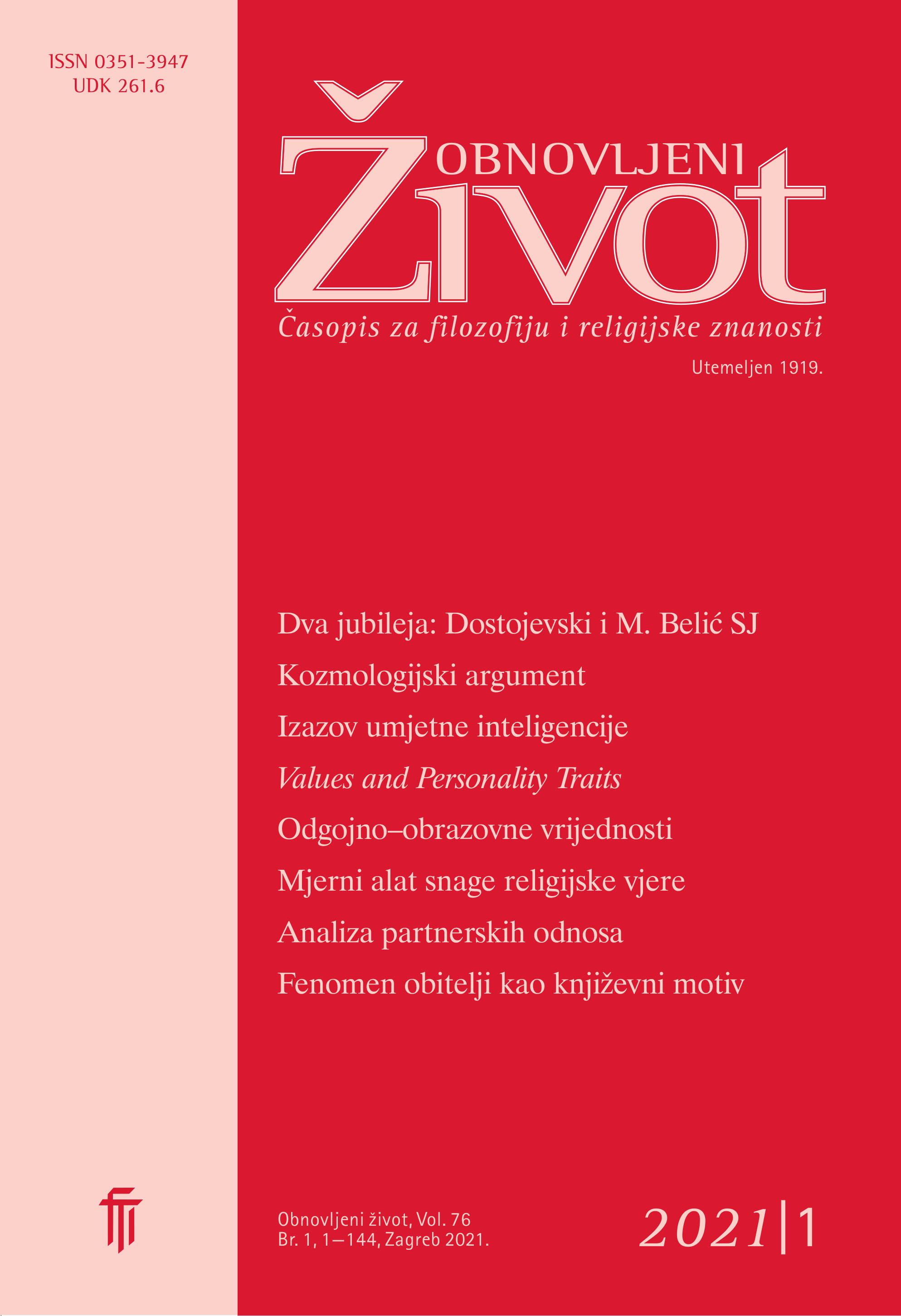The Concept and »Features« of the Nature of the Human Person in Onto–Anthropological and Ethical Challenges and Critiques on the Development of Artificial Intelligence
Keywords:
artificial intelligence, anthropology, ethics, moral status, person, freedom, will, responsibility, challenge, roboticsAbstract
This thesis presents a philosophical — theological point of view on artificial intelligence and superintelligence and has its starting point in the following question: »Can artificial intelligence claim the dignity of the human person?« The paper deals specifically with the problem of ethical questionability and the possibility of an anthropological dimension to artificial intelligence, in the full human sense, wholly and uniquely, with all the essential characteristics, characteristics of the human being and the dignity of the person. The paper deals particularly with the challenges within the social dimension because of the great utility, speed of work and profit increase owing to artificial intelligence. An increasing use and diversity in implementation from medicine, the military, computer science, robotics, the mobile industry and various other industries has resulted in the need for a comprehensive and critical review, especially in the onto–anthropological field because of the growing tendency to define artificial intelligence as a human person due to its performances and successes. We are dutibound to expand our horizons on the onto–anthropological values of the human person, especially his deepest mystical and social dimension, noting that his actions have internal values — not only external — which contribute to the development and enrichment of the spirit, both of the active subject and of the recipient at the same time. Therefore, the value of the human person is intrinsic and irreplaceable as concerns the development of another human person and also of human society.
Downloads
Published
Issue
Section
License
Jednom prihvaćeni članak obvezuje autora da ga ne smije objaviti drugdje bez dozvole uredništva, a i tada samo uz bilješku da je objavljen prvi put u Obnovljenom životu. Uredništvo će obavijestiti autora o prihvaćanju ili neprihvaćanju članka za objavljivanje.
Članci objavljeni u časopisu se, uz prikladno navođenje izvora, smiju besplatno koristiti u obrazovne i druge nekomercijalne svrhe.


